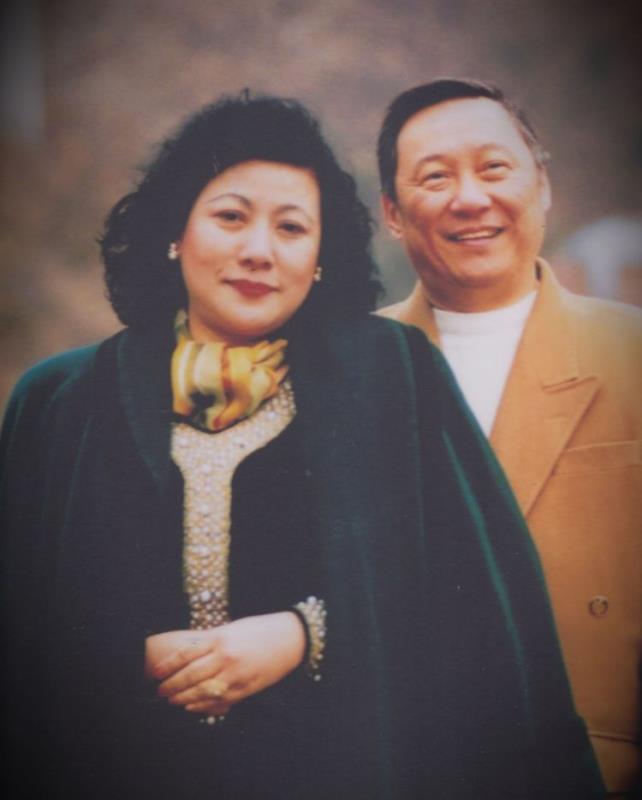
澳大利亚联邦议会澳中友好委员会主席卢铎议员于2015年6月24日在国会发表悼文缅怀邱维廉博士。原文如下:
在澳大利亚国会上发表的悼文 2020/5/7 14:13:00 浏览:801
Speech by Hon. Philip Ruddock MP
Date Wednesday 24 June 2015 Source House of Representatives Page 112
Mr RUDDOCK (Berowra) (19:35): I am always a little disappointed to follow speeches where requests are
made for additional funding for programs but no ideas are proffered about where the Commonwealth is going
to get the money to pay for them and then votes are recorded in this place against measures that are designed to
ensure that we are properly resourced to be able to meet those many requests. But that is not the reason I want
to speak tonight. I think this place is elevated when we can address matters of quite a different character.
I want to record that on 26 May last, tragically, a very fine Australian passed away. His name was William Chiu.
A memorial service was held in Sydney Town Hall on Sunday. My good friend the member for Banks, David
Coleman, was there representing me and our party because there were many hundreds of Australians, including
many of Chinese descent, who took the opportunity to bid him farewell.
He was born in Malaysia. He was educated in Australia and New Zealand. He earnt two master's degrees: one
in chemistry and one in commerce. He held an honorary doctorate from the University of Western Sydney,
and it was a great pleasure to be there on the occasion on which he received that award. He was the founding
chairman of an organisation that has a rather strange name—the Australian Council for the Promotion of Peaceful
Reunification of China. Some people are very interested in the title. My emphasis is always on 'peaceful'. It is an
organisation to which he provided very effective leadership and it had undertaken, as I will elaborate, on raising
money for very fine causes.
Dr William Chiu was widely recognised for his service to many Australian Chinese groups. He dedicated his
time to promoting trade, culture, education, health and research cross-culturally. He was state patron of the New
South Wales branch of the Australia China Business Council. He was a member of the New South Wales-Asia
Business Advisory Council. He was chairman of the 2002 international peace conference. He had membership
of the New South Wales Parliament Asia-Pacific Friendship Group. He was a strong advocate for increasing
trade between Australia and China, and I think he would have been thrilled to see the signing of the free trade
agreement recently with China.
He was the inaugural patron of the University of Western Sydney Foundation. The foundation raised funds for
education, and UWS valued his ability to promote that foundation, while he was alive, through his extensive
business connections and contacts. He was the principal sponsor of the Sydney Powerhouse Museum for its
exhibition on the Great Wall of China in 2006, which was visited by over 113,000 people during its season. He
provided a unique opportunity for Australians, particularly Chinese-born Australians, to gain new insights into
China's rich history and culture. He was convenor and donor for the Sydney Chinese community support for the
Victorian Bushfire Appeal in 2009, raising almost a quarter of a million dollars. He personally donated $20,000
and was a driving force in organising the Sydney Chinese community for later appeals.
For 12 consecutive years since 2003 he was a major sponsor and Chairman of Eyes on China—a free medical
mission to Tibet, Sichuan, Yunnan, Inner Mongolia, Xinjiang, Guizhou and Guangdong to help cataract sufferers
regain their sight and restore normality to their lives. This mission involves Australia using its unique skills to
assist in that task, and something in the order of 50 Australian eye surgical specialists and medical personnel
over the years have participated in this program; it was particularly important.
He was patron of the Australian Hokkien Huay Kuan Association, which has a long history in Sydney. The
association was established to provide support services to migrants from Fujian. His family grew up in Fujian,
although, as I said earlier, he was born in Malaysia. He was Chairman and major sponsor of the World Fujianese
Conference in 2005, which hosted more than 1,500 people. In cooperation with many other organisations, he
initiated an educational organisation, the Australian Chinese-Classics Reciting Centre, providing a platform for
Australian children, whether of Chinese origin or not, to understand Chinese culture and to promote much closer
relationships.
As you can see, his resume is extraordinary—it speaks for itself. He was a man who spent his adult life as an
advocate for international cooperation. We should be very proud of him and we will miss him greatly.
- 暂无评论!
- 发表评论文章评论(共0条)


